John Hurrell – 15 August, 2009
What is particularly impressive about this installation is the sense of calming expansion (various large windows and fire doors are opened up; adjacent ventilation alcoves and heating cupboards exposed) contrasting with violent contraction (the shattered ruin).
In this stark Michael Asher-influenced installation we have an implied future collapse of the AUT St. Paul St building, a metaphor for the demise of institutional art education. Glaister has organised a display of great austerity using empty space, natural light and open doorways. This makes it an unusual experience for New Zealand audiences, one very similar aesthetically to some of the Billy Apple ‘subtraction’ projects of 1975.
That parallel is deceptive however because Glaister’s project is definitely ‘additive.’ He has made an 8.5 ton replica of the central supporting column that is a salient feature of Gallery 1 and which thankfully remains standing. His version is cross shaped, and you can see from the striations on the floor (and brittle shattered varnish) that the weighty structure - it is two feet thick - has been pushed around with something like a very strong forklift. Then at some point it has been raised up to become vertical and then suddenly toppled.
The two central cross-bars have snapped as it crunched into the floor, sending debris everywhere. Chunks of cement are scattered around; the speckled interior and reinforcing rods of the stem exposed; its smooth exterior fragmented.
What is particularly impressive about this installation is the sense of calming expansion (various large windows and fire doors are opened up; adjacent ventilation alcoves and heating cupboards exposed) contrasting with violent contraction (the shattered ruin). Nearby Gallery Two is empty, apart from two short columns of stacked newsprint posters showing four images of ancient ruins and earthquake-collapsed buildings. The wind has scattered some of these over the floor.
The smashed up cross-shape brings another dimension to this exhibition because it refers to the sacking of Christian Europe, the plundering of churches and end of so-called ‘civilization’ by the heathen hordes. It creates a parallel with current anxieties of economic collapse within the art education sector (though in fact enrolments have increased). It refers to the demise of ‘The True Faith’ perhaps, the imminent onslaught of barbaric anarchy, the possible end of art as we know it.
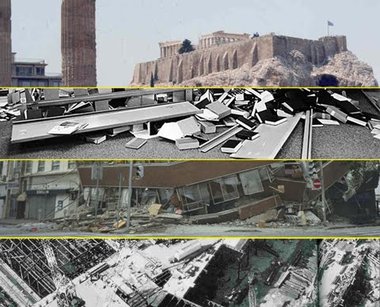
 Advertising in this column
Advertising in this column Two Rooms presents a program of residencies and projects
Two Rooms presents a program of residencies and projects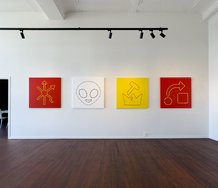
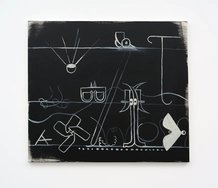
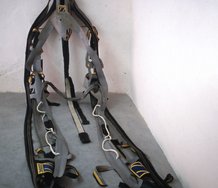
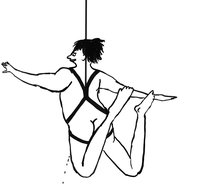
This Discussion has 0 comments.
Comment
Participate
Register to Participate.
Sign in
Sign in to an existing account.